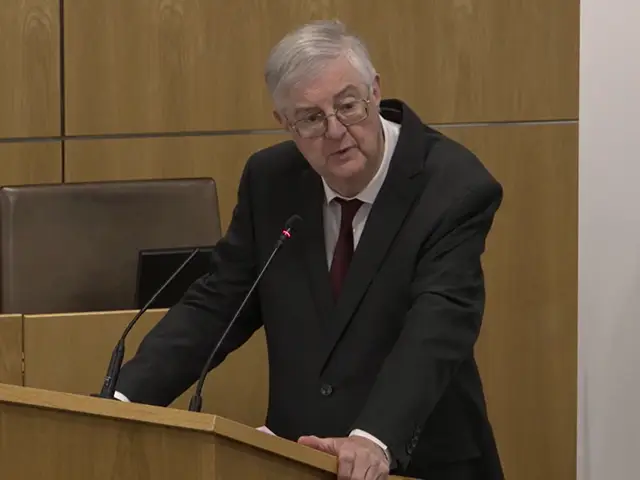THE SENEDD debated dozens of final changes to plans for a £1.30-a-night tourism levy, with the tax set to get the go-ahead in a key vote next week.
Senedd Members voted on amendments to the tourism tax bill which would see £1.30 a person, plus VAT, charged on stays in hotels, B&Bs and self-catering accommodation.
A lower rate of 80p would apply to hostels and campsites, with the 22 councils in Wales given powers to decide whether to introduce a local levy from 2027 at the earliest.
During a two-hour “stage-three” debate, finance secretary Mark Drakeford told the Senedd it is likely the bill will operate in some parts of Wales but not others.
If passed as expected at the fourth-and-final stage next week, the bill would also establish a register of visitor accommodation providers with separate plans for licensing set to follow.

Sam Rowlands, the Conservatives’ shadow finance secretary, reiterated his party’s concerns about the proposals, with the tourism sector “united in its opposition to the bill”.
He told the Senedd: “The sector, particularly after Covid, needs a government that understands it and encourages it – not one that imposes taxes that will drive people away. It’s a truth that whatever you tax, you get less of.”
Mr Rowlands said tourism is responsible for one in eight jobs and the multi-billion-pound sector pumps significant funds into the public purse through other taxes.
Conservative amendments aimed at removing powers in the bill for Welsh ministers to extend the tourism tax to berths and moorings were voted down.
Prof Drakeford replied: “They should be captured by the levy and the bill will allow that to happen,” with more work to be undertaken on cruise ships and yachts in future.
Mr Rowlands’ amendment to give councils flexibility to introduce either of the levy rates, rather than being required to bring in both or none, was voted down – as were his calls for a “more proportional and fairer” percentage-based tax, and an attempt to set the levy at 1p.
Prof Drakeford emphasised the importance of a broad base to the feasibility of the tax, explaining ministers decided against a percentage rate due to the added complexity. The former First Minister rejected the “hokey, wrecking” amendment to set the rate at 1p.
Proposals for a tourism tax were part of the three-year cooperation agreement, between Plaid Cymru and the Welsh Government, which collapsed in May 2024.
Luke Fletcher reiterated Plaid Cymru’s support, describing the current tourism model as “overly extractive in nature which then puts considerable pressure on communities”.

The shadow economy secretary pointed to similar taxes in place across Europe and plans to introduce levies elsewhere in the UK. “This potentially unlocks investment,” he said.

Conservative calls for educational trips, young carers, veterans and people living in Wales to be added to exemptions to the tax were rejected by the Senedd.
Under-18s would be exempt from the lower rate under amendments agreed at an earlier stage, when Plaid Cymru calls for all under-16s to be exempt were voted down.
Warning of “mission creep”, Mr Rowlands proposed removing powers for councils to add a premium to the levy rate but his amendment was defeated.
With Labour and Plaid holding two thirds of seats, and barring a Leighton Andrews-style mishap, the bill as amended on July 1 is highly likely to be passed on July 8.
No legal challenge is expected on the Senedd’s powers to pass the bill and, by convention, royal assent – formal approval from the monarch – is always forthcoming.














